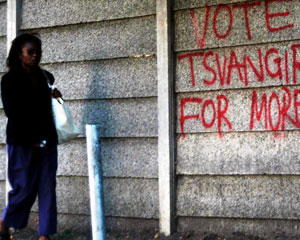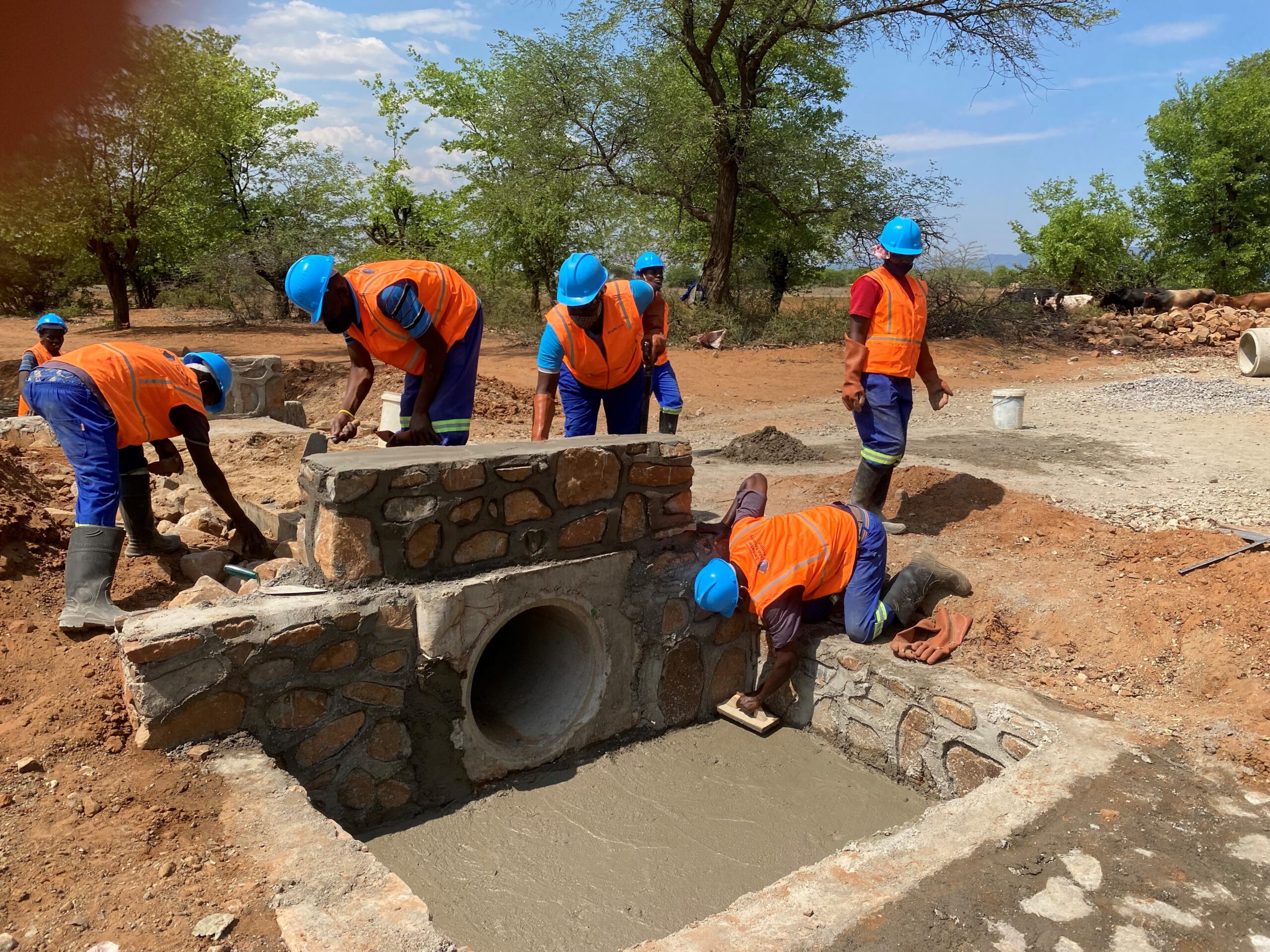
GRAFFITI is fast becoming a form of expression in the country, as political activists and artists fear to openly express themselves, especially on matters relating to the State and President Robert Mugabe.
BY NUNURAI JENA
Following Zanu PF’s controversial July 31 election victory, public buildings, toilets and precasts were littered with graffitti that’s political, economic and social in nature as disgruntled people resort to using this type of art to express themselves.
Graffiti is generally used in many countries by artists and political activists to express underlying social and political messages.
This is a form of artistic expression based upon spray paint styles.
Other than expressing political opinions, some Zimbabweans are also using graffiti to express their anger at the treatment of workers by Chinese companies in the country.
Some of the graffiti spotted read: “Zanu PF imbavha chete, MaChina go back to China [Chinese should go back to China], Vote Morgan Tsvangirai, Mugabe Rigged and Arise and Protect Your Vote”.
Chinhoyi University of Technology Art lecturer, Julius Nyamubaya said the emergence of graffiti of late is a clear testimony of lack of freedom of expression in the country. It also shows a deficiency of confidence in people’s protection after expressing themselves, he said.
- Chamisa under fire over US$120K donation
- Mavhunga puts DeMbare into Chibuku quarterfinals
- Pension funds bet on Cabora Bassa oilfields
- Councils defy govt fire tender directive
Keep Reading
“The reason is that there is limited freedom of expression, and lack of confidence in the media to put across everyone’s views,” he said.
Nyamubaya said graffiti, which is common in Europe, is un-African, but was fast catching on in the southern African region.
Some use spray paint to draw images on walls, written words and paintings while some even do it on the tarmac.
Nyamubaya said graffiti, which is also known as “protest art”, is a quick art form that’s synonymous with the oppressed.
MDC-T political activist, Englebert Mashuma said most people were forced to use graffiti to spread the party’s policies during the past elections because of the shrinking democratic space for them to openly reach ordinary people.
“Because of stringent laws like Public Order and Security Act [Posa], we were left with no option but to use graffiti,” he said.
Art admirer, Muchadei Mahove said graffiti messages are genuine and come from the heart.
“It’s genuine because it’s a personal feeling and for someone to pick up a can and spray paint, it really means a lot to that person, especially as it is risky,” said Mahove.
But Nyamubaya warned that graffiti messages should not be regarded as the general thinking of the whole community.
“If you see graffiti, it doesn’t mean the whole community isthinking like that,” said Nyamu-baya. It’s just one person or a small grouping doing it and so it cannot be regionalised.”
However, some of the graffiti sprayed after the election praised Mugabe and Zanu PF for forcing local authorities and power utility, Zesa, to cancel water and electricity bills.











